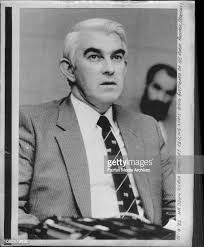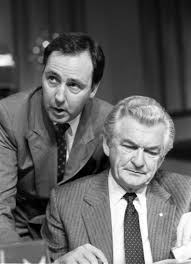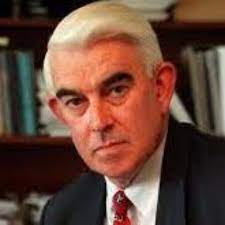
Working on the Ministerial staff of John Kerin was a privilege. He rarely gave orders to his staffers. Instead, he annotated Ministerial documents, uttered brief comments and requests, and made known his preferences for next-stage documents through what he heard and said in the thousands of meetings he held.
The Departments for which he was responsible, whether Primary Industries, Primary Industries and Energy, the Treasury, Transport and Communications or Trade and Overseas Development, all served him well. Their officers knew him; they grew to like him. They soon learned to trust him and to respect his working ways. Departmental officers were very rarely kept waiting for the return of Ministerial documents from his office: he liked to get through the paperwork.
Part of the duty of his Ministerial staffers was to sustain and augment this mutual respect between Minister and public service. The staffer’s capacity to hide behind the Minister’s wishes was treated with respect when dealing with departmental staff.
John Kerin undertook an enormous amount of official travel, mainly in Australia but also overseas as required. He had an encyclopaedic knowledge of places, people and industries in regional and remote areas. In his travels he was always willing to do the work necessary for success, always cheerful. And he took those rural insights to the metropolitan places to which he went.
He was a living bridge between the people of rural industries and ‘members of the Board’.
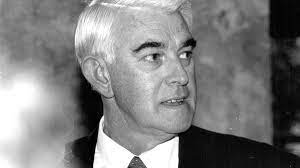
As a member of his staff, one’s hope was to ensure that he was informed of all relevant information needed to make a decision in the national interest. He was pleased to be an economist and proud to have become Australia’s number one in that profession. But he had no pleasure in knowing that so many members of the profession he joined had blind faith in small government and market forces.
For John Kerin the national interest was something real – almost tangible – albeit complex in terms of the factors determining what it looked like. When faced with hard decisions the national interest was in the room, openly discussed, which meant seeing through the self-interest of powerful people and vested interests.
He did not trust privatisation, deregulation and the outsourcing of public services. He was always opposed to the trickle-down thesis, including the notion of the trickle-down benefits of tax cuts.

By staying on his staff for over seven years I was able to provide him with some continuity. This was especially useful towards the end when the Ministerial road became bumpier. A Minister with a new portfolio has plenty to worry about without the challenge of finding suitable staff.
When working with him almost everyone with whom I came into contact had more technical nous than me, more intellectual capacity, and more commercial experience.
But they did not have the Ministerial confidence and trust given to a loyal retainer.
I think I was able to provide what John Kerin needed on the personal (and personable) front – as a friend who was always around but did not interfere nor expect too much. I helped to satisfy his need for friendship and civility in his workplace. And it helped that there was a shared sense of empathy and fairness for those affected by decisions made.
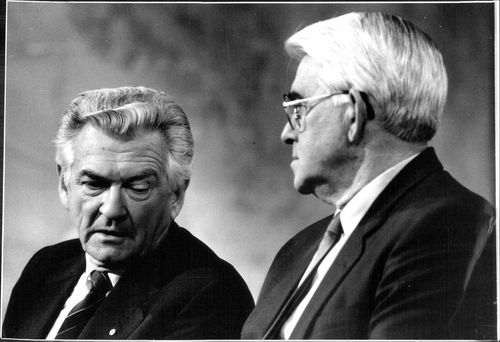
The high-level technical support required by a Minister in economics, production, commerce, management and governance could be provided by others who would come and go.
In a well-functioning Minister’s office there also needs to be someone with sufficient patience to deal with people who will not go away: those bearing gifts, the eccentric and the confused. I was that person who, by dealing in a kindly fashion with such ‘enthusiasts’, could help maintain the good reputation of the Minister.
Just once in my seven years with him John gave me a very direct order. We were in the Russian Far East talking about trade relationships. Kerin was being welcomed by means of a rollicking dinner which, if I recall correctly, featured vodka and dancing of a traditional late-night-folk variety.
Towards the end of the evening some of the local staff sang a Russian song in Kerin’s honour. He and June were momentarily panicked: how could we possibly reciprocate and maintain our delegation’s good face? He ordered me to sing Travelling down the Castlereagh – which I did.
Like everything else one did with John Kerin, it was professionally appropriate for its time and place but it was also fun. Given his absolute detestation of war, drinking and dancing in the Russian Far East would now seem both unlikely and inappropriate. But as a self-confessed humanist by nature, John Kerin would, I’m sure, ask us to distinguish between the Russian people on the one hand and their leaders on the other.
Rest in peace John.
